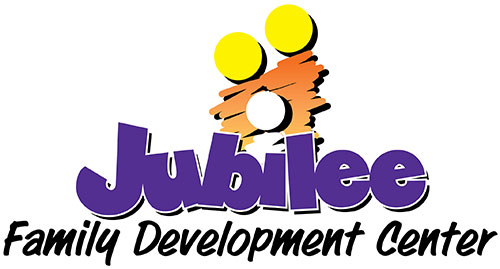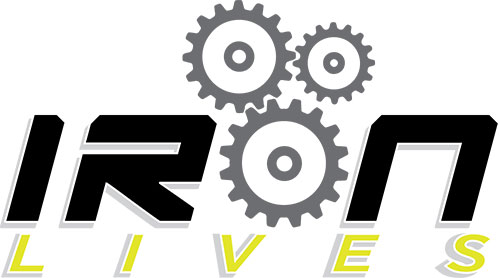Lynchburg Tomorrow is a collaborative effort aimed at creating a thriving city by bringing together a wide range of organizations and citizens and leveraging resources through a collective impact and strength-based model to foster stronger neighborhoods and communities.

The Program Components
The initiative encompasses a number of programs and projects geared toward promoting a culture of collaboration and community building.
The Center for Leadership is working in partnership with three nonprofits — Iron Lives, Jubilee Family Development Center, and Beacon of Hope — as part of a collective impact initiative funded by a $50,000 grant from the Virginia Attorney General’s Office and adheres to the Center’s definition of collective impact, which guides all of its initiatives
Common Agenda:
Youth development in the City of Lynchburg
Goal:
Change the trajectory of students by enhancing academic achievement, exploring career opportunities, developing strength-based leadership, increasing developmental assets, and improving decision-making skills.
Common Metrics:
Attitude and Behavior Survey from the Search Institute
This survey will provide baseline data on attitudes and behavior, which will be valuable to the nonprofits and LCS as they work with students.
Developmental Assets Profile from the Search Institute
The Search Institute has identified 40 positive supports and strengths, or assets, that young people need to succeed. Half of these focus on relationships and opportunities they need in their families, schools, and communities (external assets). The remaining assets focus on the social-emotional strengths, values, and commitments that are nurtured in young people (internal assets).
Used as a pre-assessment, the DAP provides baseline data on the number of assets students have. Used a year later as a post-assessment, the DAP measures the growth of assets. Research notes that developing even one additional asset will help students make better decisions and stay out of the criminal justice system and away from drugs. The goal is that a minimum of 80% of students will increase their assets.
Youth and Program Strengths Survey from the Search Institute
This survey is a series of items added to the DAP at program completion which provides data specific to each nonprofit to help measure its impact. This data is critical to each nonprofit as it measures its effectiveness.
Identification of Career Options from Journeys Map
This online career exploration software enables students, based on their interests, to explore career options and to understand what it will take to be successful in identified careers. For nonprofits providing internships, this information will be helpful in identifying potential matches. In addition, the information will be shared with school guidance departments to help students choose programs based on college or career options.
Identification of Talents and Strengths using the CliftonStrengths for Students Assessment
The Center has a CliftonStrengths Coaching Center with nationally certified coaches. Students in the nonprofits will complete the assessment and discover their top five strengths. A strengths coach will provide group coaching on how students can use their strengths to make better decisions. Students will articulate their strengths through the development of an elevator speech in which they describe themselves through their strengths.
Plan of Action:
While each nonprofit has its own goals and organizational structure, all have agreed that each are valuable assets to the city in youth development. All support each other.
- Heads Meet Together (Consortium):
Heads of the three nonprofits meet monthly to share what they’re doing and to share common metrics. - Backbone for the Initiative:
The Center for Leadership provides the backbone.
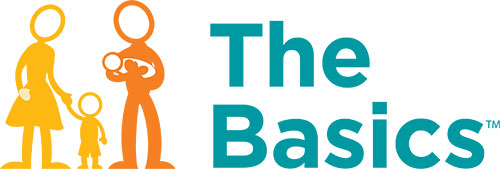 Originally called the Boston Basics program and developed by Dr. Ron Ferguson at Harvard, it offers participating parents a wealth of information and resources aimed at strengthening early childhood education experiences for their children. With the aid of an app and access to additional materials, parents are given regular activities and ideas for engaging their children in education at an early age.
Originally called the Boston Basics program and developed by Dr. Ron Ferguson at Harvard, it offers participating parents a wealth of information and resources aimed at strengthening early childhood education experiences for their children. With the aid of an app and access to additional materials, parents are given regular activities and ideas for engaging their children in education at an early age.
In Lynchburg, a $10,000 grant from the Patrick Henry Foundation was instrumental in providing access to mothers who could benefit from the program. A pilot program was launched, in collaboration with Virginia Baptist Hospital and a local daycare facility, offering the app and other resources to new mothers and those with children between the ages of birth and five years.
During the pilot program, parents’ use of the app and resources are closely monitored to gauge the effectiveness of the program. If the results are positive and parents demonstrate they are using the app to better engage their children in early childhood education, the initiative will be expanded to reach more parents and children in the area.
The Basics is an evidence-based program that has been rigorously tested and evaluated, and its positive impact on early childhood education has been demonstrated through research. The program is designed to provide parents with the tools they need to create a strong foundation for their child’s education and future success.
We are dedicated to implementing Lynchburg City Council’s “Lynchburg Plan” which aims to increase neighborhood leadership by cultivating emerging grassroots leaders. Through community outreach efforts, we identified a neighborhood encompassing Diamond Hill and White Rock Hill as the focus of our efforts. With support from local organizations, we identified and trained a group of 12 emerging community leaders who are committed to making a positive impact in their neighborhoods.
After the first cohort of leaders completes the capstone, we will modify the process for the next cohort, with adjustments to the curriculum and completion timeframe. We will continue to incorporate CliftonStrengths, while focusing more intentionally on the use of individual talents and strengths during training. There will also be an increased focus on implementing the basic elements of leadership. The capstone requirement will remain in place to ensure participants have the opportunity to apply what they’ve learned and make a tangible impact in their community.
The Center for Leadership, in collaboration with Dr. Gilman Whiting, a Vanderbilt University professor, initiated the Scholar Identity Institute for 23 high school students of color from E.C. Glass and Heritage high schools. The program was held on the University of Lynchburg campus from June 6-10, 2022. The Scholar Identity Model emphasizes not only academic performance but also attitudes toward education, decision-making, and achievement. The program is designed to help students of color engage or re-engage in the academic process.
During the morning sessions, led by Whiting, the students delved into the nine constructs of the Scholar Identity Model, including self-efficacy, future orientation, willingness to make sacrifices, and internal locus of control. The afternoons were dedicated to leadership development, including completion of the CliftonStrengths for Students Assessment. The students also engaged in conversations with Glass and Heritage alumni, who shared their experiences and the importance of learning and leadership.
The program concluded with a dinner for the students and their parents, along with representatives from the University’s leadership team, the school division, and the high school principals. Support is also provided for the students throughout the academic year. Both high schools have identified mentors to work with the students and Center for Leadership staff have met with the mentors to discuss the process. Additionally, Whiting met with the mentors virtually to discuss the scholar identity constructs.
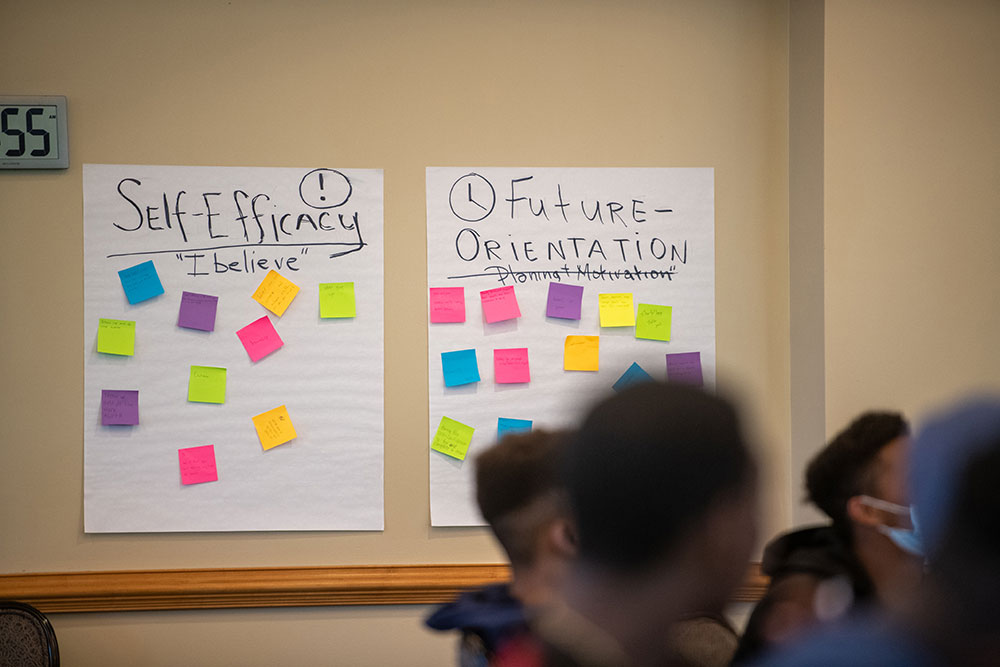
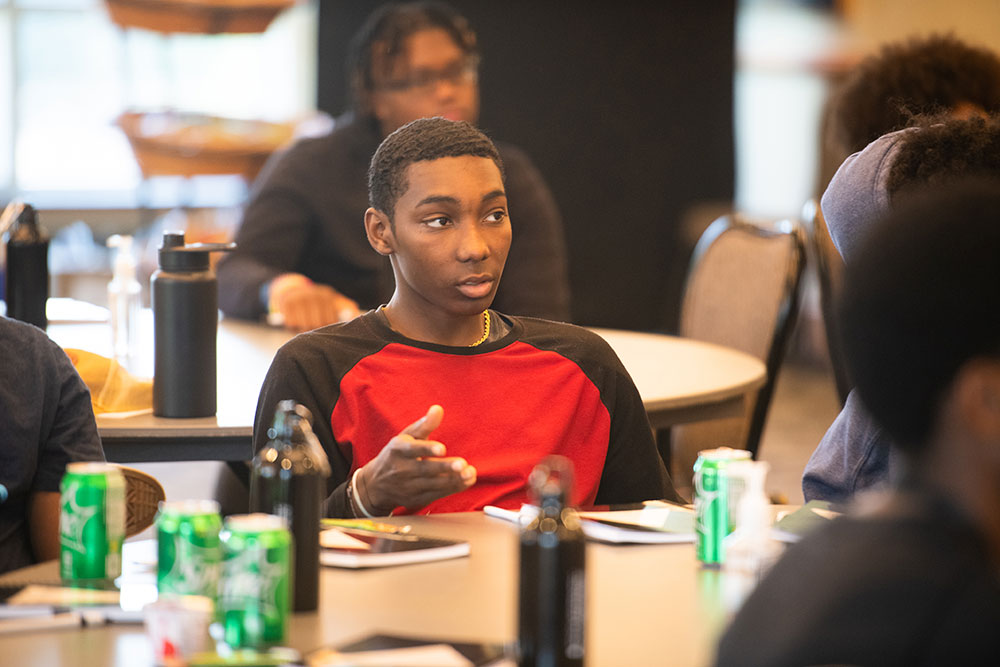
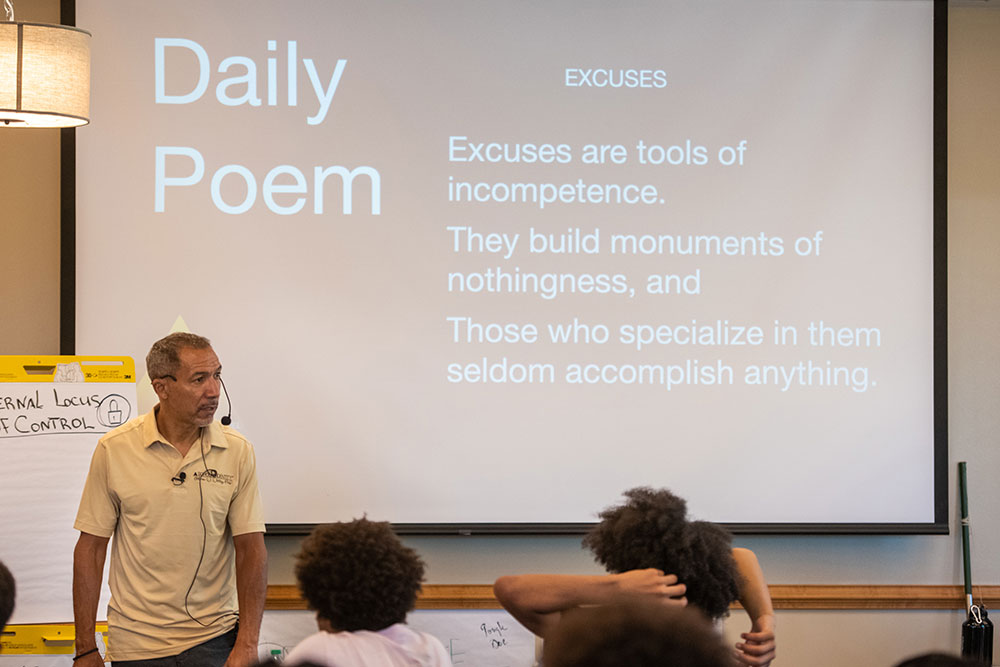
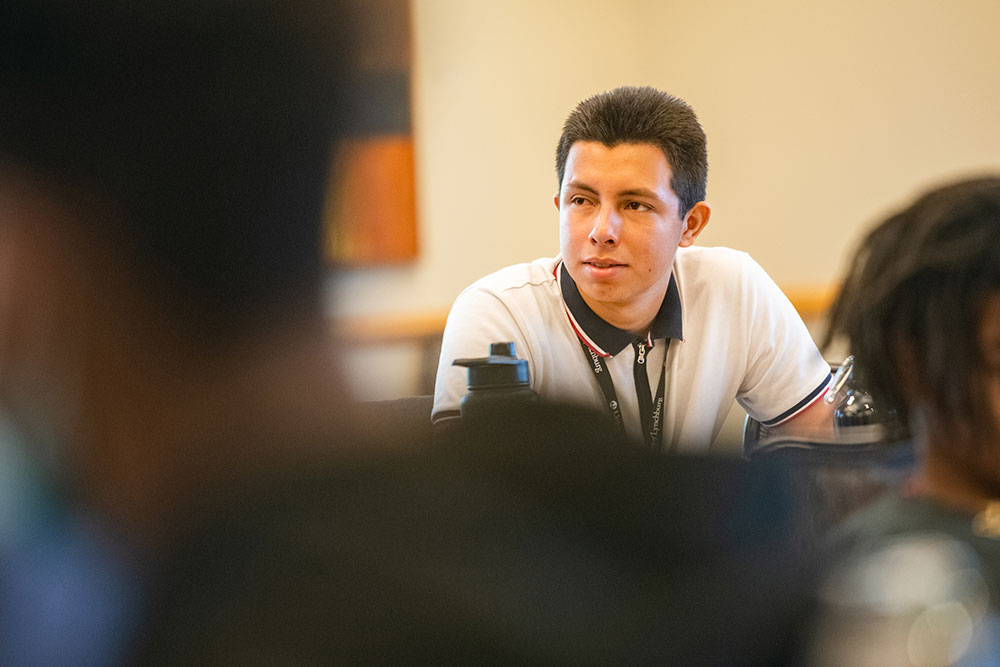
To bridge this gap, a human-centered design process has been developed to create and test messages and tools that help parents, caregivers, and children internalize vocabulary and practices to support “spiritual thriving” in families. The project’s core is a human-centered design process, which will be conducted collaboratively with three regional Design labs. Labs are located in Portland, Oregon; Pasadena, California; and Lynchburg, Virginia, where the Center for Leadership is located. Each lab will partner with African-American, Hispanic/Latinx, and/or low-income families to go through a five-step process.
These steps include:
- Learning more about the audience for whom you are designing a process.
- Constructing a point of view based on user needs and insights.
- Brainstorming and developing creative solutions.
- Building a presentation of one or more of the ideas to share with others.
- Testing the ideas within the community, gathering feedback, and determining if these ideas have value with other racial-ethnic groups, income groups, denominational or faith groups, or age levels.
By conducting this human-centered design process, the regional design labs will identify effective approaches and tools that support spiritual thriving in families, especially those from underrepresented communities. The Lynchburg lab, hosted by the Center for Leadership, is proud to be a part of this important project and is looking forward to making a difference in the lives of families and communities.
The Center for Leadership has secured two grants exceeding $210,000 to establish the Good Gangs initiative. The inaugural program included students from Lynchburg City School’s Empowerment Academy, who completed a specially designed curriculum related to the Teen and Police Service, or TAPS, Academy. Conducted by law enforcement personnel, the TAPS curriculum instills responsible decision-making, encourages participation in crime prevention projects, and reduces social distance between the students and law enforcement.
A team of mentors provides guidance to the participants, who are mostly African-American males or those from underprivileged backgrounds. Research suggests that group mentoring, as opposed to one-on-one models, is more effective for such students. The mentoring strategy focuses on altering the trajectory of these young individuals and encompasses academic success, career development, civic engagement, character building, and leadership development.
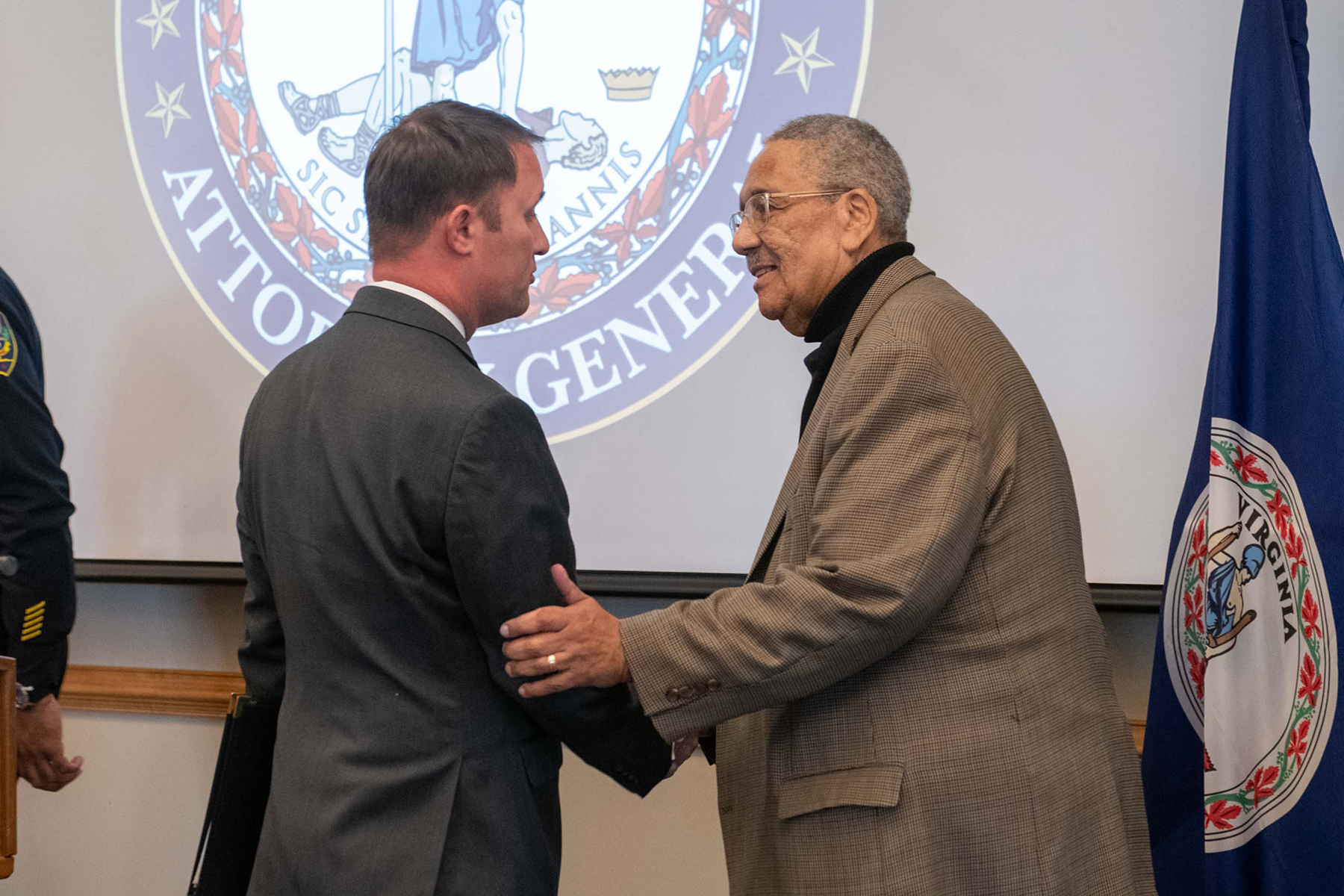
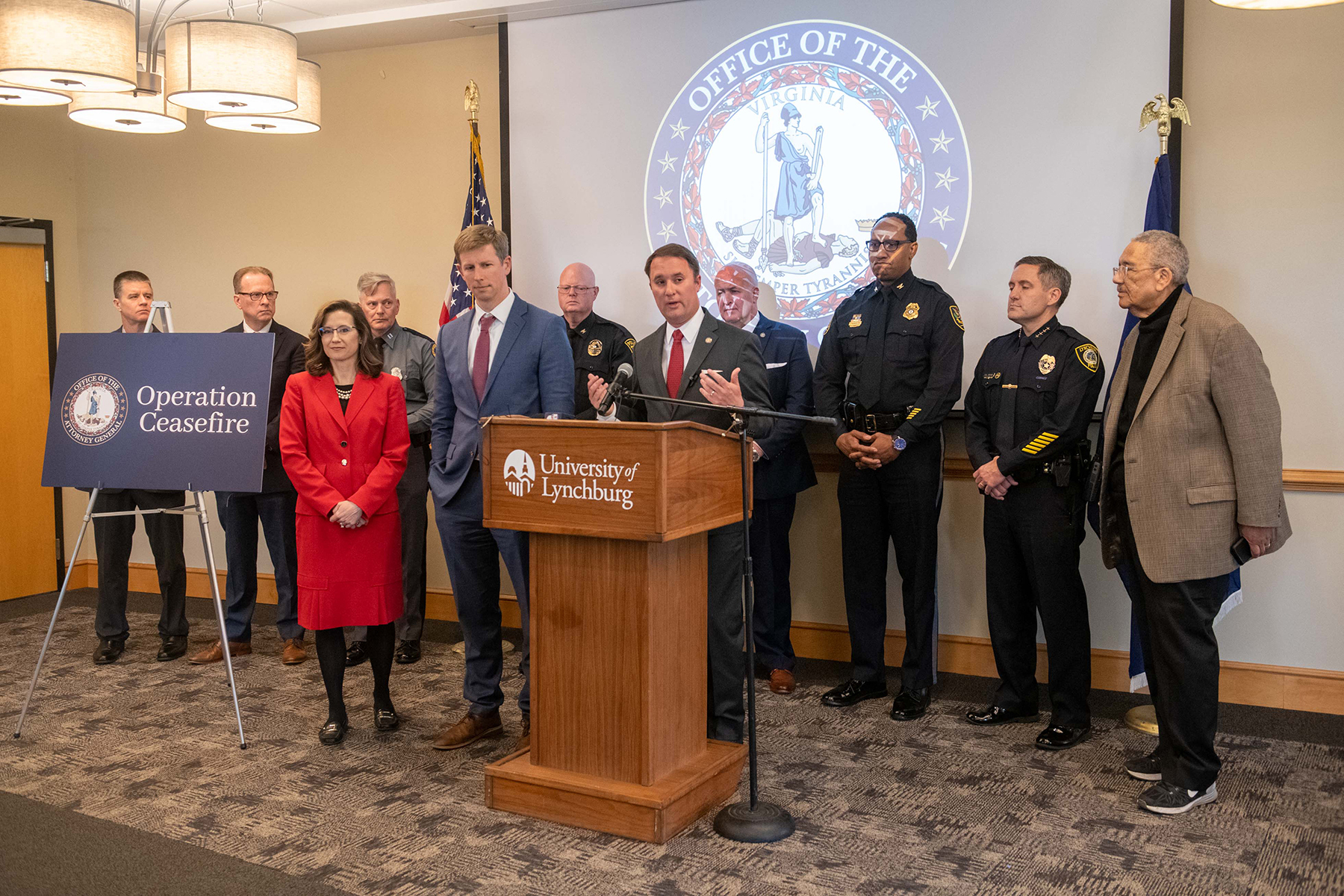
Using the Search Institute’s Developmental Assets and Developmental Relationships framework, mentors and center staff assist the students in expanding their assets. The Journeys Map program helps them chart a course toward a career and employment, and the cohorts partake in service-learning and field trips. The program has a strength-based approach that identifies and nurtures individual strengths via the CliftonStrengths for Students Assessment and personalized coaching.
